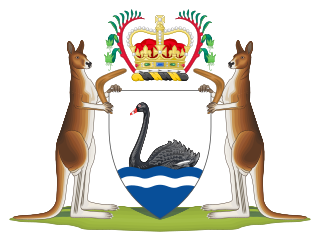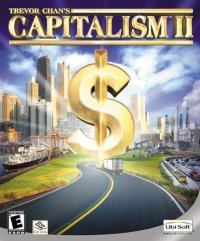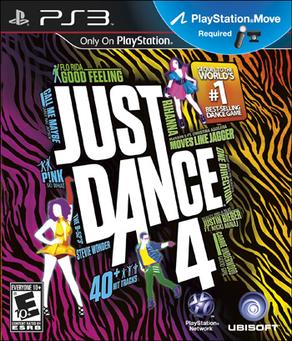The Australian Broadcasting Corporation (ABC) is the national broadcaster of Australia. It is principally funded by direct grants from the Australian Government and is administered by a government-appointed board. The ABC is a publicly-owned body that is politically independent and fully accountable, with its charter enshrined in legislation, the Australian Broadcasting Corporation Act 1983. ABC Commercial, a profit-making division of the corporation, also helps to generate funding for content provision.
An Internet filter is software that restricts or controls the content an Internet user is capable to access, especially when utilized to restrict material delivered over the Internet via the Web, Email, or other means. Content-control software determines what content will be available or be blocked.
The Democratic Leadership Council (DLC) was a non-profit 501(c)(4) corporation that was active from 1985 to 2011. Founded and directed by Al From, it argued that the United States Democratic Party should shift away from the leftward turn it had taken since the late 1960s. One of its main purposes was to win back white middle class voters with ideas that addressed their concerns. The DLC hailed the election and reelection of Bill Clinton as proof of the viability of Third Way politicians and as a DLC success story.
Internet censorship in Australia is enforced by both the country's criminal law as well as voluntarily enacted by internet service providers. The Australian Communications and Media Authority (ACMA) has the power to enforce content restrictions on Internet content hosted within Australia, and maintain a blocklist of overseas websites which is then provided for use in filtering software. The restrictions focus primarily on child pornography, sexual violence, and other illegal activities, compiled as a result of a consumer complaints process.

Helen Lloyd Coonan is a former Australian politician who was a Senator for New South Wales from 1996 to 2011, representing the Liberal Party. She was a minister in the Howard government, serving as Minister for Revenue and Assistant Treasurer from 2001 to 2004 and then as Minister for Communications, Information Technology and the Arts from 2004 to 2007.

The Parliament of Western Australia is the bicameral legislature of the Australian state of Western Australia, forming the legislative branch of the Government of Western Australia. The parliament consists of a lower house, the Legislative Assembly, an upper house, the Legislative Council and the King, represented by the Governor of Western Australia. The two Houses of Parliament sit in Parliament House in the state capital, Perth.

The Open Rights Group (ORG) is a UK-based organisation that works to preserve digital rights and freedoms by campaigning on digital rights issues and by fostering a community of grassroots activists. It campaigns on numerous issues including mass surveillance, internet filtering and censorship, and intellectual property rights.
A cryptocurrency exchange, or a digital currency exchange (DCE), is a business that allows customers to trade cryptocurrencies or digital currencies for other assets, such as conventional fiat money or other digital currencies. Exchanges may accept credit card payments, wire transfers or other forms of payment in exchange for digital currencies or cryptocurrencies. A cryptocurrency exchange can be a market maker that typically takes the bid–ask spreads as a transaction commission for its service or, as a matching platform, simply charges fees.

Capitalism II is the sequel to the business simulation video game Capitalism. It was created by Enlight and published by Ubisoft in 2001.
The International Centre for Missing & Exploited Children (ICMEC), headquartered in Alexandria, Virginia, with a regional presence in Brazil, Singapore, and Australia, is a private 501(c)(3) non-governmental, nonprofit global organization. It combats child sexual exploitation, child pornography, and child abduction.
Cleanfeed is the name given to various privately administered ISP level content filtering systems operating in the United Kingdom and Canada, and as of May 2012 undergoing testing in Australia with a view to future mandatory implementation. These government-mandated programs originally attempted to block access to child pornography and abuse content located outside of the nation operating the filtering system.
Internet censorship in the United Kingdom is conducted under a variety of laws, judicial processes, administrative regulations and voluntary arrangements. It is achieved by blocking access to sites as well as the use of laws that criminalise publication or possession of certain types of material. These include English defamation law, the Copyright law of the United Kingdom, regulations against incitement to terrorism and child pornography.
Downloadable content (DLC) is additional content created for an already released video game, distributed through the Internet by the game's publisher. It can either be added for no extra cost or it can be a form of video game monetization, enabling the publisher to gain additional revenue from a title after it has been purchased, often using some type of microtransaction system.
Internet censorship in New Zealand refers to the Government of New Zealand's system for filtering website traffic to prevent Internet users from accessing certain selected sites and material. While there are many types of objectionable content under New Zealand law, the filter specifically targets content depicting the sexual abuse or exploitation of children and young persons. The Department of Internal Affairs runs the filtering system, dubbed the Digital Child Exploitation Filtering System (DCEFS). It is voluntary for Internet Service Providers (ISPs) to join.

Trove is an Australian online library database owned by the National Library of Australia in which it holds partnerships with source providers National and State Libraries Australia, an aggregator and service which includes full text documents, digital images, bibliographic and holdings data of items which are not available digitally, and a free faceted-search engine as a discovery tool.
The UK Council for Child Internet Safety (UKCCIS) was set up in 2008 under the Brown Government charged with bringing together government departments, law enforcement agencies, academia, private industry and third-sector representatives such as charities and voluntary groups to collaborate on strategies to ensure child internet safety. It is a group made up of more than 200 constituent organisations with a board chaired by ministers. It collates internet safety research, conducts its own consultations, gives advice to industry providers and publishes a code of practice. The remit of the Council began with the Byron Review and the group has subsequently drawn on diverse sources including the Bailey Review and the work of Professor Sonia Livingstone.

Just Dance 4 is a 2012 music rhythm game developed and published by Ubisoft as the fourth main installment of the Just Dance series. Announced at E3 2012 by Flo Rida and Aisha Tyler, it was released on the Wii, the Wii U, the PlayStation 3, and the Xbox 360. The Wii, PlayStation Move and Kinect versions were released on October 2, 2012 in Europe and Australia and on October 9, 2012 in North America, The Wii U version was released on November 18, 2012 in North America and on November 30, 2012 in Europe and Australia, as a launch title for the console.
The precise number of websites blocked in the United Kingdom is unknown. Blocking techniques vary from one Internet service provider (ISP) to another with some sites or specific URLs blocked by some ISPs and not others. Websites and services are blocked using a combination of data feeds from private content-control technology companies, government agencies, NGOs, court orders in conjunction with the service administrators who may or may not have the power to unblock, additionally block, appeal or recategorise blocked content.






